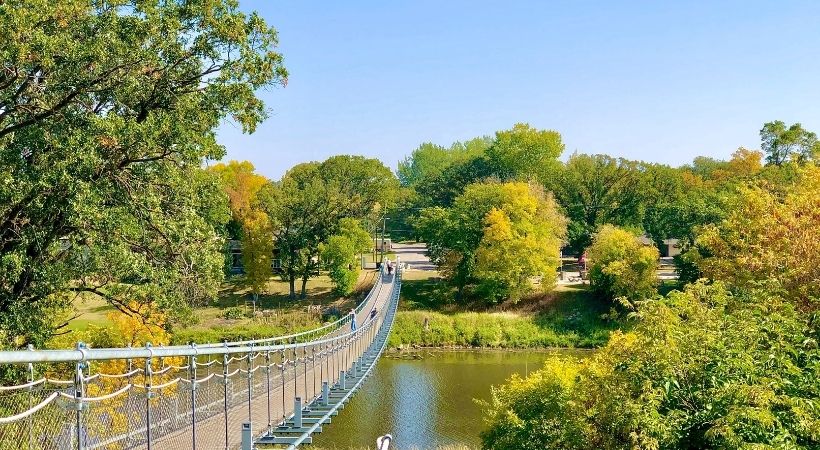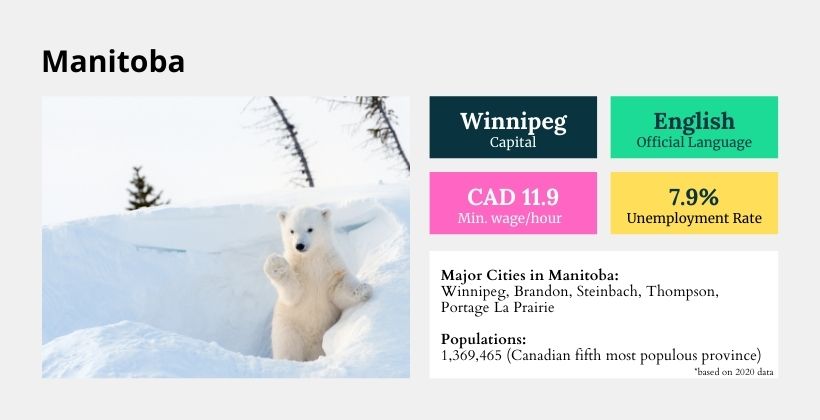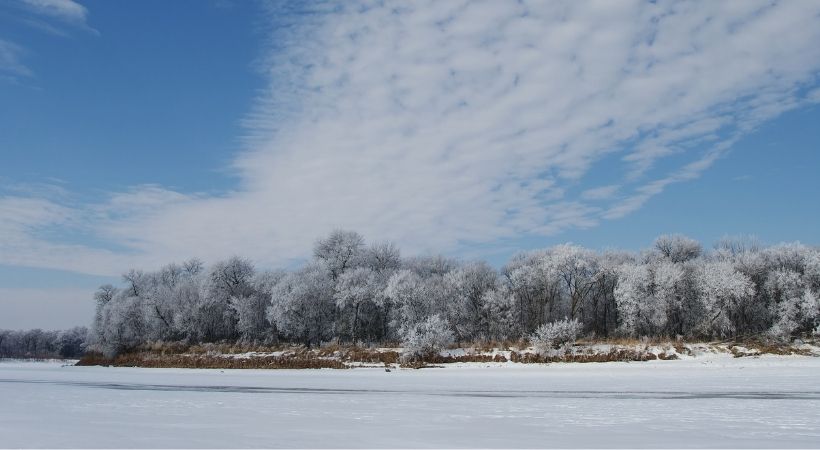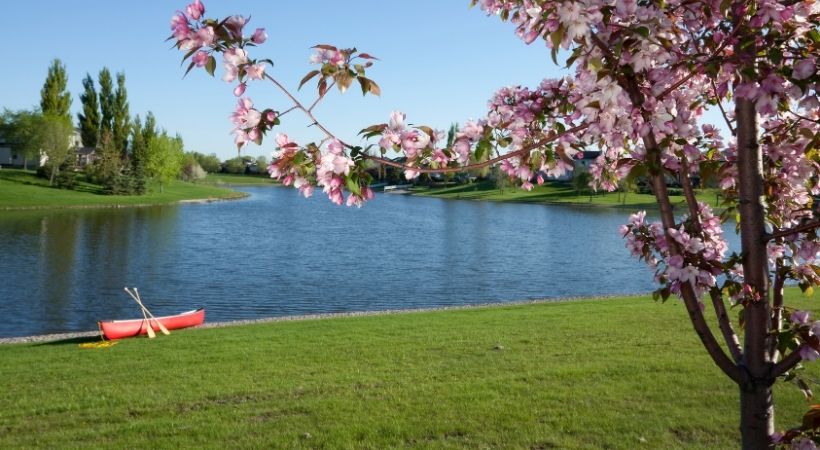PR in Manitoba for International Students

The purpose of the PR in Manitoba is to attract the brightest international students and foreign workers, with the required skills and expertise, to settle in Manitoba. The PR program in Manitoba, also known as the Manitoba Provincial Nominee Program (MPNP), enables employers to quickly recruit individuals to meet their labour demands.
Before we delve deeper into the subject of permanent residence for international students, let’s learn a little more about Manitoba in general.
Manitoba at a glance:
Manitoba, one of the Prairie Provinces, is framed by the Nunavut Territories to the north, Ontario to the east, the US to the south and Saskatchewan to the west. It is home to more than 110,000 lakes This includes Lake Winnipeg, one of the world’s top ten largest inland bodies of water. Manitoba has more than 80 provincial parks.
Women gained the right to vote in provincial elections on January 28th, 1916. This was two years ahead of the rest of Canada.

The province has a mixed economy, an urban orientation, and multiethnic characteristics. Indigenous people have been living in Manitoba for more than ten thousand years. In the 17th century, British and French traders began to settle down in Fort Nelson, Assiniboine and the Red River Valley. Due to economic exploitation and settlement issues, the Métis people led an armed uprising against Canada’s Government in 1869.
This eighth largest province has a moderately strong economy based on natural resources. Today their economy relies on agriculture, tourism, electricity, oil, mining, and forestry. Churchill, Manitoba is the world's capital of Polar Bear and Beluga whale watching.
Cost of living for students:
Compared to other provinces, Manitoba has a low cost of living. Winnipeg is the 3rd cheapest city to live in in Canada and 81% cheaper than all cities in North America. The average cost of living for one student, before rent, is about $1135. A one bedroom apartment, in suburban Winnipeg will cost about $975/month to rent.
Student Scholarships:
There aren’t many scholarships offered for international students, by the Manitoba Provincial Government. However, there are many scholarships for domestic students. You can find more about the scholarships at:
Growing Industries in Manitoba:
These industries will create more jobs in Manitoba in the coming years. So, graduating with a relevant degree in any of these fields will provide you an upperhand in securing a well paying job and later when applying for PR in Manitoba.
Advanced Manufacturing
Aerospace
Agribusiness
Creative Industries
Education
Energy and Environment
Financial Services
Furniture and Building Products
Information and Communication Technologies
Life Sciences and Biotechnology
Mining and Minerals
Tourism
Transportation and Distribution
Source: Gov.mb.ca
Interesting facts about Manitoba:
Winnipeg was the first place in the world to develop the single 3-digit emergency phone number (911 in Canada).
The town of Gimli is home to the largest Icelandic community outside of Iceland.
You can easily watch the Northern Lights from the town of Churchill, that lies on the shores of the Hudson Bay! Keep one eye open for polar bears.
The bison (buffalo) is their provincial animal.
Wapsusk national park is the world’s largest denning site for polar bears and Hudson Bay is home to 25,000 beluga whales.
Winnipeg has the sunniest winter season in Canada, with more than 358 hours of sunshine.
Winnipeg’s Folk Festival is one of the oldest and largest folk festivals in the world.
Bruce, the world’s largest publicly displayed Mosasaur, lives in the Canadian Fossil Discovery Centre which houses the largest prehistoric marine fossils in North America.
The Canadian Museum for Human Rights is also in this province.
Winnipeg has the world’s longest skating trails in the world.
Besides producing coins for Canada, Winnipeg’s Royal Canadian Mint has minted currency for 60+ countries.
Best Universities or Colleges in Manitoba:
| Name | Town |
|---|---|
| University of Manitoba | Winnipeg |
| The University of Winnipeg | Winnipeg |
| Brandon University | Brandon |
| Canadian Mennonite University | Winnipeg |
| Université de Saint-Boniface | Winnipeg |
Cheapest Universities or Colleges in Manitoba:
Red River College
Université de Saint-Boniface
Canadian Mennonite University
Menno Simmons College
Booth University College
University College of the North
University of Winnipeg
Providence University College and Theological Seminary
Brandon University
University of Manitoba
PR in Manitoba:
PR in Manitoba requirements vary from category to category. The province of Manitoba has four different streams for immigration. Based on the province’s specific economic needs, the Manitoba Provincial Nominee Program (MPNP) selects candidates for immigration. These four streams are:
Skilled Worker in Manitoba Stream
Skilled Worker Overseas Stream
International Education Stream
Business Investor Stream
In this article, we will only cover the International Education Stream. Discussions on the other streams are not within the scope of this article.

International Education Stream:
Students who graduated from Manitoba colleges or universities may apply to the International Education Stream (IES) to get PR in Manitoba. Students planning to apply in the IES stream are no longer required to have six months of work experience in their field before applying for a MPNP nomination. There are three substreams within this stream.
Career Employment Pathway
Graduate Internship Pathway
Student Entrepreneur Pathway
1. Career Employment Pathway:
International students who graduated from STEM subjects, with internships contributing to innovation, can apply for PR in Manitoba and should be able to get nominated. The requirements for this substream are:
Education: Students must have graduated with a degree at least one year or two semesters (full-time) in length, in the past three years, from an eligible post-secondary institution in Manitoba;
Official Languages Proficiency: At least a score of seven or equivalent in the CLB/NCLC;
Current Employment in Manitoba: You need a minimum 1-year contract from Manitoba’s published In-demand Occupations list and have a full-time job offer from an eligible employer.
There may be a program or occupation-specific limits imposed by the MPNP.
Suppose you have completed a bridging program and passed the initial stage of certification as determined by the appropriate regulatory body. In that case, you are not required to have a job offer at the time of application.
Settlement Funds: You must either be employed in a full-time long-term position in Manitoba or demonstrate liquid funds from independent financial resources to support yourself (and your family) for six months.
Adaptability: When applying, you must reside in and show intent to live in Manitoba. This means that you need to write a career employment plan that will demonstrate opportunities for you in Manitoba.
2. Graduate Internship Pathway:
Applying for PR in Manitoba in this substream is straightforward because graduates don’t need a job offer if they have graduated from Mitacs Accelerate or Elevate Internships. This substream targets master's and doctorate holders for expedited nomination through internships that contribute to industry innovation in Manitoba.
Education: Completed a doctoral or master’s degree program in Manitoba within the past three years.
Official Languages Proficiency: At least score a seven or equivalent in CLB/NCLC.
Current Employment in Manitoba: A master or doctoral program completion in Manitoba with a Mitacs Accelerate or Elevate Internship, in an eligible industry and/or research enterprise in Manitoba will not require you to have a job offer at the time of application.
Settlement Funds: You must either be employed in a full-time long-term position in Manitoba or demonstrate liquid funds from independent financial resources to enable you to support yourself (and your family) for six months.
Adaptability: When applying, you must reside in and show your interest in permanently residing in Manitoba. A career employment plan that will demonstrate opportunities for a successful career track in Manitoba must be submitted with your application.
3. Student Entrepreneur Pathway:
Students who graduated from Manitoba Institutions and want to start a business in the province can apply for the PR in Manitoba under this stream. The applicant must meet certain business performance agreements before they can be nominated in this substream.
Business Experience: You need a business plan and must operate the business physically as a senior manager daily for at least six months before nomination. Business equity ownership of at least 51%;
Official Languages Proficiency: At least score seven or equivalent in CLB/NCLC (IELTS Academic is accepted in addition to other language proficiency tests in this pathway only);
Education: Must successfully complete a full-time post-secondary program in Manitoba of at least two years in duration. Please note that distance learning or compressed academic programs are not eligible. Work experience gained outside of Canada may be beneficial but is not an eligibility requirement;
Age: 21 to 35 years of age;
Adaptability: You must:
Have a valid post-graduation work permit (PGWP) or open work permit at the time of application;
Demonstrate intent to live in Manitoba continuously and have continuously resided in MB since graduation;
Net Worth/ Settlement Funds: Your fund source will be considered when evaluating your business plan;
Business Performance Agreement: The MPNP must issue a business performance agreement that will support your application for a work permit. It should be done after an application is approved.
Helpful Websites to know more about Manitoba and its immigration processes:
Beautiful Manitoba
Navigation
# Why Canada? # Education System # Student Budget # Student permit/visa # Spousal Visa # After landing # Student Housing # Complete Checklist # Driving License # Study and Work # All Provinces in Canada # PR in Alberta # PR in British Columbia # PR in Manitoba # PR in New Brunswick # PR in NL # PR in Nova Scotia # PR in Ontario # PR in PEI # PR in Québec # PR in Saskatchewan # Cheap Universities # Cheapest Colleges # Alberta DLI # British Columbia DLI # Manitoba DLI # New Brunswick DLI # NL DLI # Nova Scotia DLI # Ontario DLI # PEI DLI # Quebec DLI # Saskatchewan DLI # Part-time jobs # Scholarships in Canada # Survive Winter

Cover Letter

Forwarding Letter

Student Financial Planning

Explanation Letter of Source of Fund

Explanation on previous Visa Rejection



